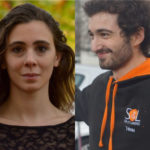

Next Colloquium Loria will take place on Thursday, 24 February on Teams.
We are honored to welcome Serena Villata, Tenured researcher at CNRS at I3S, with a presentation entitled “Towards assessing natural language argument quality: results and open challenges”.

Gabrielle de Micheli and Charlie Jacomme, two former Loria PhD students, have recently been awarded by the Société Informatique de France (SIF). Congratulations to them!

For Guillaume Coiffier, a 2nd year Ph.D. student in the Loria’s Team Pixel (CNRS, Inria, University of Lorraine), his duty as a scientist is not only to conduct his research.


• Malware, or malicious software, pirates our data, destroys our software and hard drives, and forces our computers to pour forth torrents of spam. It is a major issue in cybersecurity today.
• The CNRS, l’Université de Lorraine, Inria, and the company WALLIX have joined forces to step up the fight against malware.
The CNRS, the Université de Lorraine, Inria, and WALLIX, a European cybersecurity software publisher, have combined their skills to step up the fight against malware. The goal is to conceive and develop predictive cybersecurity solutions based on artificial intelligence in order to maximize the detection of malicious software. This partnership will become official on 7 December 2021 through the creation of a new associated research laboratory, Cybermallix.
